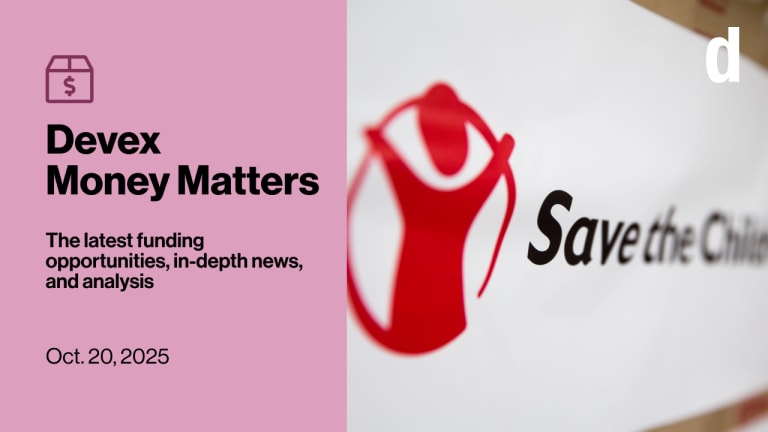CARE International UK has filed new financial statements showing how government aid cuts cost it almost half its income — and at one point left it facing uncertainty over whether it would survive.
CARE, a poverty reduction charity primarily focused on women and girls, was previously one of the largest INGOs in the United Kingdom. But its latest accounts, which were filed five months late last week, show a drop in income from £62.7 million (about $76.6 million) in financial year 2021 to £38.6 million in 2022 — a fall of 38.5%.
The accounts follow on the heels of its 2021 accounts — which were filed 400 days late, in July this year. They also showed a major drop in income, from a high point of £73.9 million in 2020, for a total drop of nearly 50% in just two years.
This story is forDevex Promembers
Unlock this story now with a 15-day free trial of Devex Pro.
With a Devex Pro subscription you'll get access to deeper analysis and exclusive insights from our reporters and analysts.
Start my free trialRequest a group subscription







